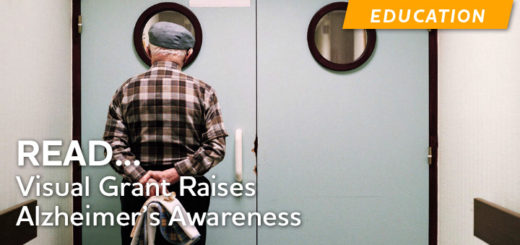Dementia & Driving
Driving demands quick reaction time and fast decision making “” because of this, a person with Alzheimer’s will eventually become unable to drive. Dealing with the issue early on can help ease the transition.
What to Do When Your Loved One’s Driving Concerns You
Losing the independence driving provides can be upsetting. It is important to acknowledge a person’s feelings and preserve his or her independence, while ensuring the person’s safety and the safety of others.
Starting the conversation
- Initiate a dialogue to express your concerns. Stress the positive and offer alternatives.
- Address resistance while reaffirming your unconditional love and support.
- Appeal to the person’s sense of responsibility.
- Reinforce medical diagnoses and directives. Ask the physician to write a letter stating that the person must not drive. Or ask the physician to write a prescription that says, “No driving.” You can then use the letter or prescription to reinforce the conversation.
- Understand that this may be the first of many conversations about driving.
When the conversation does not go well
- Some people give up driving easily, but for others this transition can be very difficult. Be prepared for the person to become angry with you, due to the memory and insight issues that are part of Alzheimer’s. Be patient and firm. Demonstrate understanding and empathy.
- Acknowledge the pain of this change and appeal to the person’s desire to act responsibly.
- Ask a respected family authority figure or your attorney to reinforce the message about not driving.
- If the conversation does not go well, do not blame yourself. The disease can impair insight and judgment, making it difficult for people to understand that their driving is no longer safe. Also the disease can cause mood and personality changes that make reactions more pronounced.
- As a last resort, take away the car keys, disable the car or remove the car completely. When you do any of these things, be sure to provide safe and reliable alternative transportation.
Ideally, family and caregivers would start a conversation in the early stages of the disease, long before driving becomes problematic. That is when a person with Alzheimer’s disease may begin to have difficulty with complex tasks often required when driving.
Although family and caregivers can watch for signs of unsafe driving, a proactive strategy would be to get a comprehensive driving evaluation by an occupational therapy driving rehabilitation specialist. The evaluation provides a more objective understanding of the current impact of the disease on driving capacity and results in a plan of options.
The goal is always to retain the highest level of independence and mobility in the community. Initial recommendations may include strategies to reduce driving risk during the early part of the disease. The occupational therapist can offer strategies specific to the individual’s goals and needs. The American Occupational Therapy Association website includes a national database of driving specialists as well as a wealth of resources for both persons with Alzheimer’s disease and their families.
Helpful information related to this post:
- Call our 24/7 Helpline: 800.272.3900
- Locate a support group in your community
- Visit our message boards

















